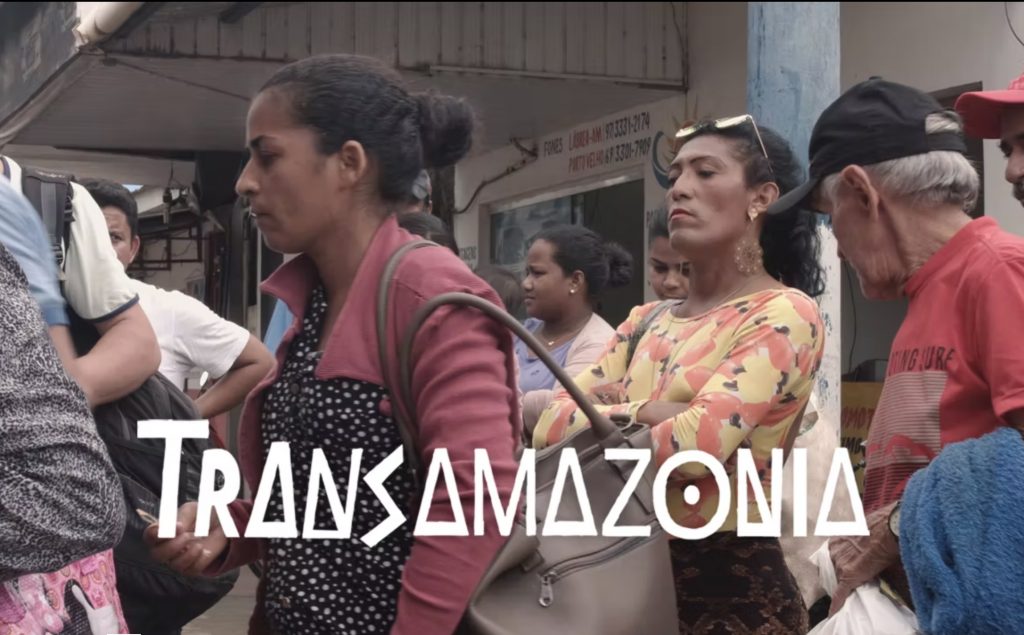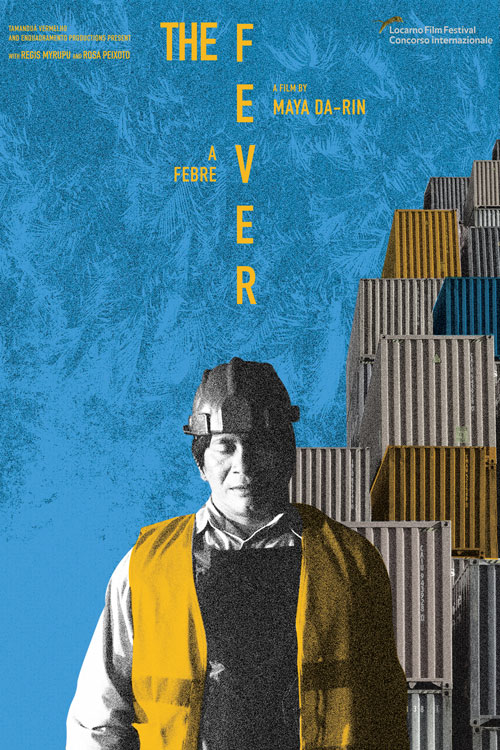
- This event has passed.
Amazon Lab Film Series
October 1, 2021 @ 12:00 am - May 31, 2022 @ 12:00 am
An indigenous man living in the Brazilian city of Manaus is struck by a fever and the sensation that he is being hunted by an invisible beast.
A Colombian drug lord uses the labor exploitation methods of rubber plantations and builds a replica of the mansion of the American TV show Dynasty in the middle of the forest (1981-89).
A group of indigenous women whose territory is encroached on by extractive agrobusiness set out on a mission to collect seeds and plant the forest of tomorrow.
These are a few of the themes that emerge from the Amazon Lab’s 2021-22 Film Series, which includes examples from fiction, documentary, and experimental cinema—as well as hybrid films that defy classification. Focusing on the outstanding work of contemporary women filmmakers, including indigenous and transgender directors, the series offers unique perspectives on some of the main issues facing the Amazon today.
The series is co-sponsored by the Center for Latin American and Caribbean Studies.
The following is a list of the films we will screen.
The Fever
(A febre, Brazil, 2019, 98 min.), Dir. Maya Da-Rin
November 3rd, 2021 – 5:00pm (virtual screening – register for the Zoom event here)
A middle-aged native widower in Brazil, Justino lives his life according to set patterns. He puts in long shifts as a security guard in the Port of Manaus, then returns to the outskirts of the city, where he lives with his family. When his daughter says she wants to study in Brasilia, Justino’s regular life gradually becomes disrupted. His pain manifests itself in the form of a mysterious fever and is followed at night by a mysterious creature.
Marina Bedrán (Johns Hopkins) will introduce the film.

Heat
(Quentura, Brazil, 2018, 36 min.), Dir. Mari Corrêa
December 1, 2021 – 5:00pm (virtual screening – along with Yarang Mamin – register for the Zoom event here)
Too hot! The spawning fish do not come at the right time and the pepper plants end up dying in this heat. “This is a very different weather that not even the spirits can understand.” From their gardens, homes, and backyards, the indigenous women of the Amazon involve us in their vast universe of knowledge while they observe the impacts of climate change in their ways of life.
Miguel Rojas Sotelo will introduce and facilitate discussion of the film.

Yarang Mamin
(Brazil, 2019, 21 min.), Dir. Kamatxi Ikpeng
December 1, 2021 – 5:00pm (virtual screening – along with Heat – register for the Zoom event here)
In the Xingu Indigenous Territory (Mato Grosso, Brazil), indigenous filmmaker Kamatxi Ikpeng documents the history of a group of Ikpeng women who have started a movement to collect seeds and reforest the headwaters of the Xingu River. With images from the everyday life of the work of the women, this short film presents their hopes and achievements of this group, which has already planted around one million trees that will make up the forest of the future.
Miguel Rojas Sotelo will introduce and facilitate discussion of the film.
We will screen the following films in Spring 2022 (dates TBD):

Transamazonia
(Brazil, 2019, 74 min), Dir. Bea Morbach, Débora Mcdowell, and Renata Taylor
February 15, 2022 – 5:30pm (virtual screening – register for the Zoom event here)
Melissa is 21-year-old mother and law student. Marcelly is 35, unemployed, and living with her mother. They’re both travesties resisting at different points of the Transamazonian Road, a territory marked by the genocide of its native people.
Prof. Maria Fantinato will be a discussant for the film.

Journey to a Land Otherwise Known
(France, 2011, 23 min.), Dir. Laura Huertas Millán
Inspired on the first accounts of the natural and ethnographic explorations in America by the Conquistadors, the missionaries and scientists, this film is entirely shot in the Tropical Greenhouse of Lille, a building constructed in 1970 by Jean-Pierre Secq, a sort of reinforced concrete botanical Crystal Palace. As in a sort of philosophical tale, between the pastiche of the travel diaries and a “jungle movie”, the film makes us penetrate the night of an exotic “elsewhere”. It is a free reflection on the conquest of America and the images that it engendered.


El Laberinto
(Colombia, 2018, 21 minutes), Dir. Laura Huertas Millán
A narrator who witnessed the spectacular rise and fall of drug lords in the Colombian Amazon takes us on a labyrinthine journey. Clever montage of clips of original 16mm landscape imagery results in an uncanny ethnographic study of narco-capitalism and enduring pre-colonial relations.



Jiíbie (Colombia, 2019, 24 min.), Dir. Laura Huertas Millán
The fabrication ritual of the green coca powder (called mambe or “Jiíbie”) unveils an ancestral myth of kinship. In the Muiná-Muruí community, the coca plant is not a product, but a sacred interlocutor, the beating heart of a collective body.

The Dead and the Others
(Chuva é cantoria na aldeia dos mortos, Brazil/Portugal, 2018, 114 min.), Dir. Renée Nader Messora and João Salaviza
15-year-old Ihjãc, an indigenous Krahô from the north of Brazil, is called to organize the funerary feast for his father so that his spirit can depart to the dead’s village. Denying his tribal duty, Ihjãc runs away to the city, where he faces the reality of being indigenous in contemporary Brazil.

